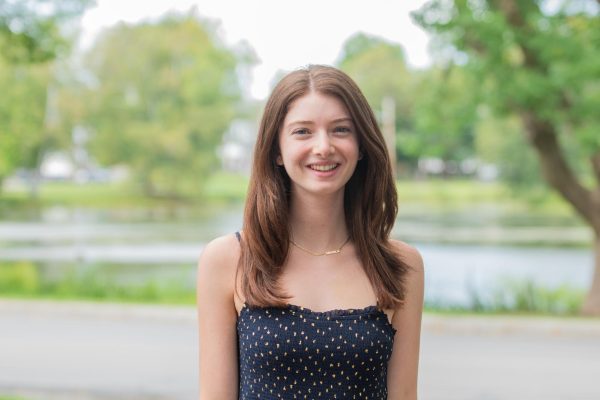Professor Monica Mercado Gives Lecture on Women and Voting in America
The Colgate University Center for Outreach, Volunteerism, and Education (COVE) held a lecture on Women and Voting in America on Thursday, March 30. The lecture was given by Monica Mercado, Professor of History at Colgate University, who focuses on women, gender, and sexuality in the United States.
Mercado’s discussion centered on how the past and present intersect to inform the history of women voting in the United States, particularly women of color. She explained how the history of voting rights extends beyond 1920.
“I also hoped we would think of winning the right to vote in 1920 as a question of ‘suffrage for whom?’— when we know many women of color, including Native women and women in US colonial holdings had to keep working to get that right,” Mercado said.
Mercado explained how making 1920 the focal or end point of the story surrounding voting rights misses so much of the past that is important to the conversation. In the founding of the United States, voting was seen as a privilege. It was reserved for white, property-owning men.
She outlined three significant moments in history in the discussion of voting rights in the United States. The first was after the Civil War in which the 15th amendment granted black men the right to vote. Secondly, women gained the right to vote through the 19th amendment. In 1970, the 26th amendment lowered the voting age from 21 to 18. This timeline helped students to understand the history of this struggle.
“Laws after 1920 went a long way to fix voter suppression, but we’ve also seen so many restrictions renewed in our own lifetimes,” Mercado said.
Mercado discussed how voting rights are an ongoing struggle. She addressed how in the last 10-15 years there have been increases in early voting skepticism and voter ID laws.
Sophomore Owen Fahey found the lecture to be engaging and the message important and relevant to students.
“Something I found surprising about the lecture was just how easy it was for participants to see a connection between the past to the present,” Fahey said. “The long struggle for women’s right to vote in the United States carries over to the voter suppression laws we see today… many students, I believe, left with the knowledge of how the past truly lingers in today’s time.”
Students had the opportunity to ask Mercado questions. One student asked about the success of the passage of Title IX and the failure to pass the Equal Rights Amendment. Another student asked about ways to respond to the belief that votes do not matter in a state that is majority red or blue. Students reflected on the importance of making the effort to vote as well as ways to make voting more accessible.
Junior Kyleigh Frank also felt learning about the past struggles in obtaining voting rights was important to understand barriers to voting today.
“If we encourage discussion about how the struggle to vote persisted even after the 190s, we can begin to have a better conversation about policies in contemporary contexts and how they may present new sets of challenges to groups that often lack representation in the US political scene.”

Amanda Krowitz is a sophomore from Short Hills, NJ concentrating in English. She has previously served as a contributing writer for the Commentary section....










